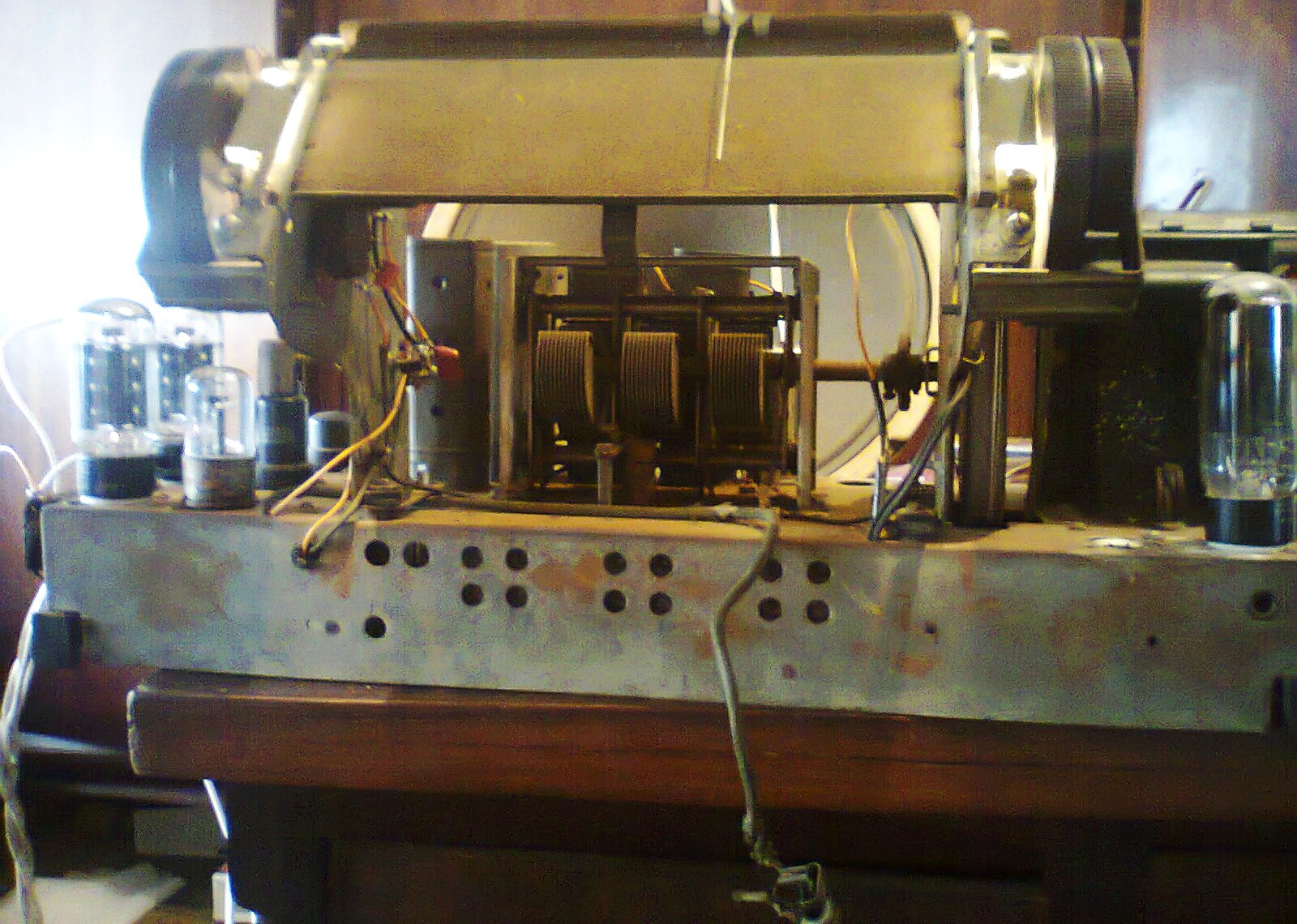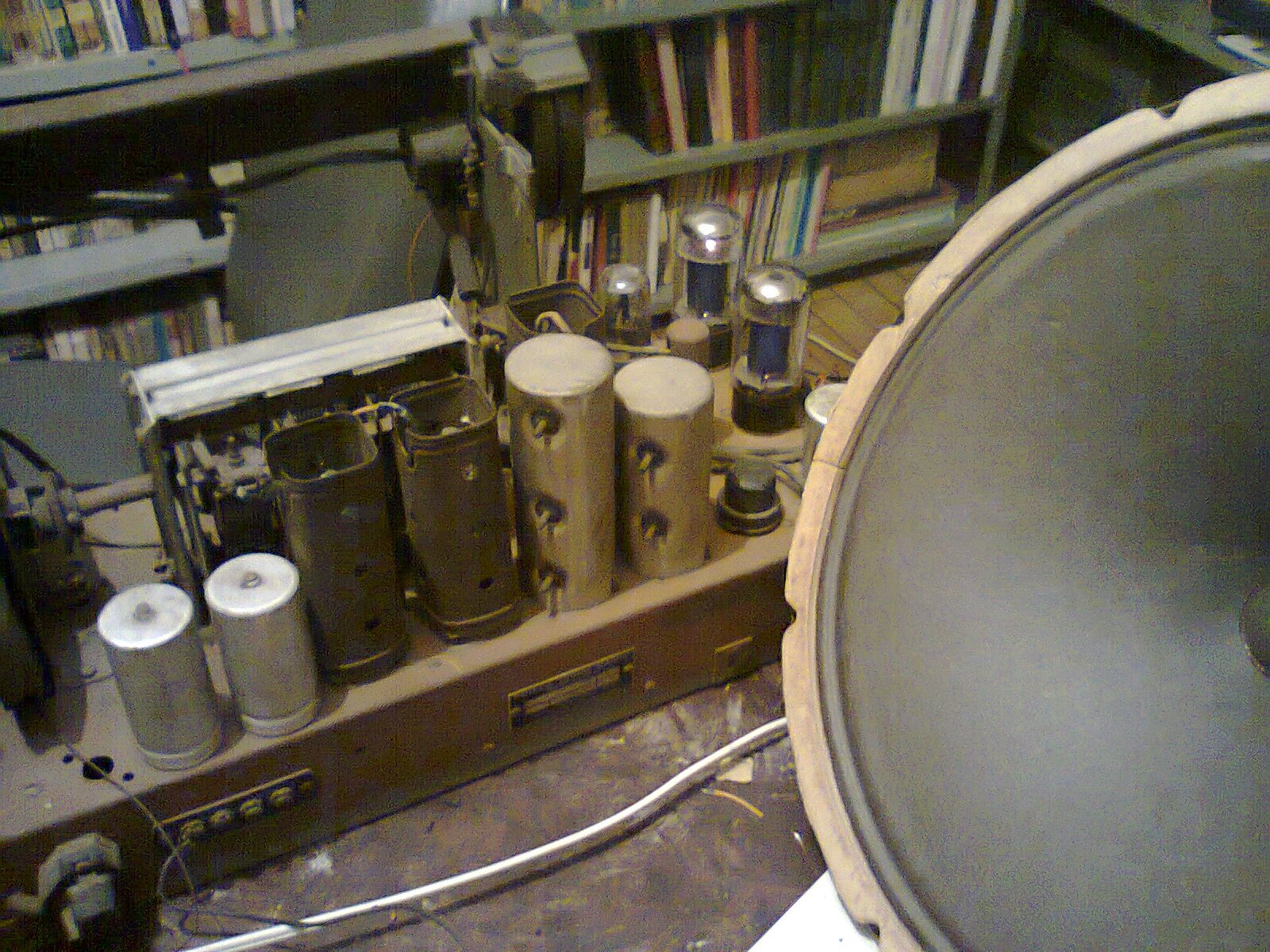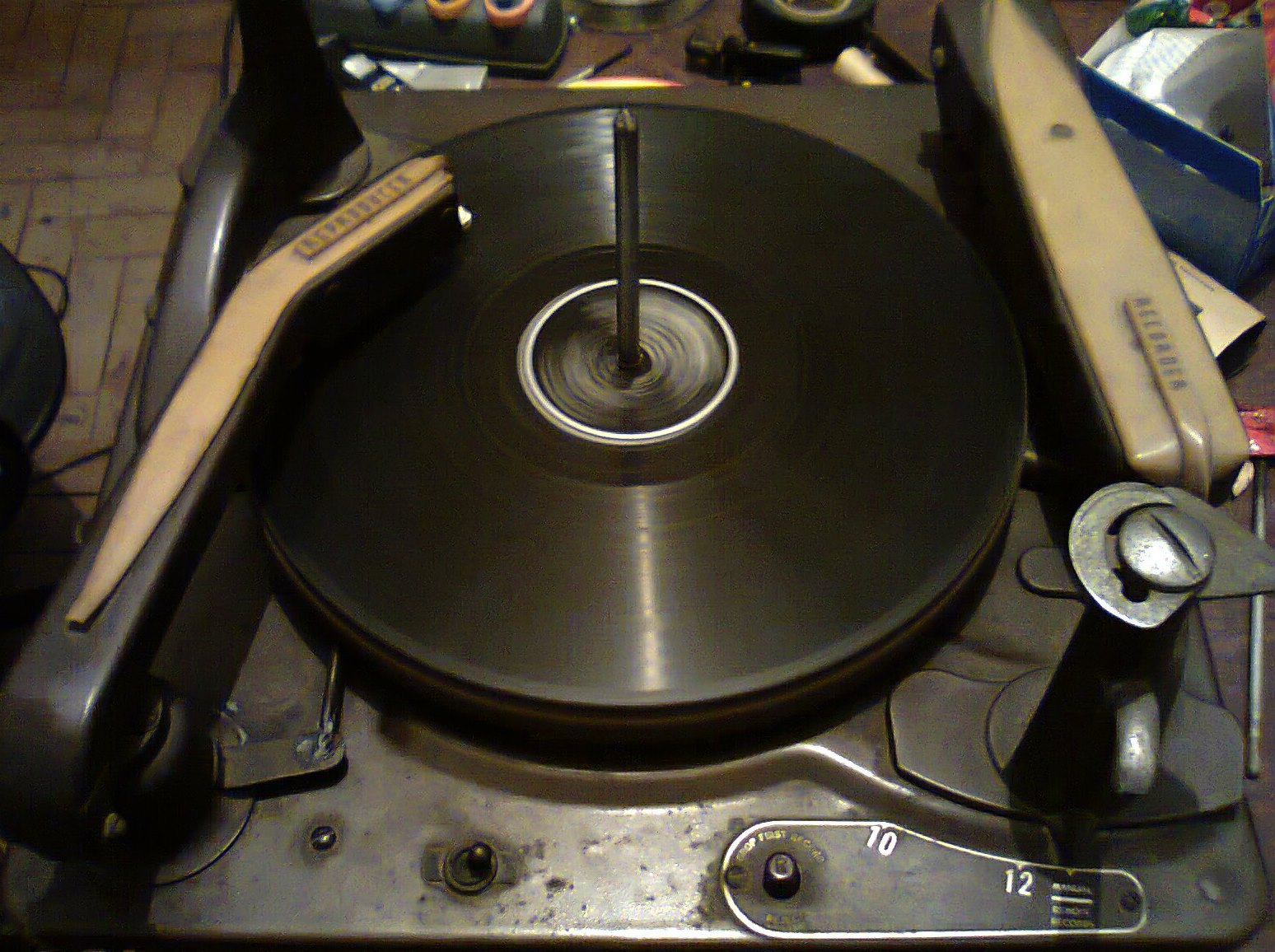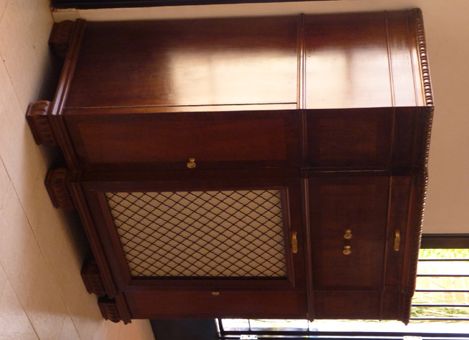39-770EZ Philco restoration
Posts: 3
Threads: 1
Joined: Oct 2012
City: São Paulo (SP), Brazil
Hi all. My forst post here.
I'm restoring a Philco 39-770EZ. But have no schematic - those I've found on web are different from what I have in the radio.
It is with tubes 5U4, 6K7G, 6J8EG, 6K7G (probably - no more marks on it!), 6H6, 6C5, 6J5, (2x) 6L6.
Anyone has a tip about the schematic?
To confume me a little more, the forniture is the same of Model 41-616P, as I saw at this site.
Thanks in advance!
Martin
Posts: 4,950
Threads: 54
Joined: Sep 2008
City: Sandwick, BC, CA
Martin
That sounds like a Philco Tropic model, which was a series of set Philco build specifically for export, most seem to have ended up in South America.
In any event the schematics to the Tropic models usually start with a 39-7--, 40-7--, 41-7--, the service manual issued for each year should have the Tropic models listed in it near the end of the radio received section and before the phonograph section. I have the 1939 Philco manual but I would have to look this model, scan it, and email it to you, if someone doesn't come up with it first.
Regards
Arran
Posts: 4,950
Threads: 54
Joined: Sep 2008
City: Sandwick, BC, CA
The schematic on Nostalgia Air shows 11 tubes, 6K7, 6J8, 6K7, 6H6, 6J5, 6J5, 6J5, 6F6, 6F6, 6J5, and a 5V4. The N.A schematic apparently came out of the Riders manuals, I will check the Philco book to see if anything was revised, they usually included notes if they did change anything during the production run. I don't think that the 6L6s are correct in any case, the 5U4 could have been a substitute for the 5V4, they have similar electrical characteristics.
Regards
Arran
Posts: 3
Threads: 1
Joined: Oct 2012
City: São Paulo (SP), Brazil
Arran,
Thanks for your answer!
I'm from South America, Brazil. As far as I can read at the radio, it says (in french) it's for export.
I don't know much about what happened with this radio... When I found it there were old tires over it, tons of spiders inside (and 50 78rpm records!  ) and so on.
The schematics I've found (like that at Lostalgia Air) always had two 6J5 to inverse the phase to the push-pull... This one use just one, using that plate/cathode circuit to do the job.
I'm putting some photos of it...
Martin



[attachment=1316]
(This post was last modified: 11-18-2012, 08:22 AM by martinsantos.)
Posts: 3
Threads: 1
Joined: Oct 2012
City: São Paulo (SP), Brazil
This is the gabinet, just finished! Was common to Philco to sell a radio with the gabinet of another model?

Posts: 2,353
Threads: 92
Joined: May 2010
City: Clayton, NC
Being an "export" or a Philco that was manufactured in another country, it is not surprising to see the combination of chassis/cabinet.
Does your set have the tube diagram pasted on the inside of the cabinet? If it does, can you take a photograph of it and post it here??
You have a nice radio! 
Posts: 2,353
Threads: 92
Joined: May 2010
City: Clayton, NC
Oh yes, and with respect to the rectifier, the 5V4 does include a cathode on one of the filament pins while the 5U4 does not, this could be a problem is you use a 5U4 to replace a 5V4.
Posts: 4,950
Threads: 54
Joined: Sep 2008
City: Sandwick, BC, CA
Sorry it took so long to reply, I've been having computer problems for the past week. The rectifier tube is supposed to be a 5Y4 not a 5V4, if the power transformer is still the original unit I would replace the rectifier tube with the proper type as the 5U4 draws more filament current then the 5Y4. Also if it still has the original power transformer there is no advantage in using a pair of 6L6s in this radio as it will not have enough anode/plate/B+ voltage to make use of them. The originals were supposed to be 6F6s but 6V6s are a viable substitute. As for the cabinet Philco would sell just about anything to anyone who wanted it, they would even sell just a chassis. I'm not sure about Brazil in the 1930s and 40s but Philco had branch companies set up in many countries including Argentina so that cabinet may have been locally produced and a left over Tropic chassis fitted to it as the cabinet is a 1941 design and the chassis is a 1939 design. That phonograph is a post war unit, it looks identical to one I have in a Meisner portable unit from about 1947.
Regards
Arran
(This post was last modified: 11-25-2012, 10:52 PM by Arran.)
Users browsing this thread: 1 Guest(s)
|
|
Recent Posts
|
|
Philco Model 38-7: what caps & resistors do fail typically?
|
| Hi all,
on vacation in Montreal, a friend of mine showed me a Philco Model 38-7 console radio from the 30ies. Mechan...Musaeum — 07:21 PM |
|
Part numbers to model cross
|
| I looked thru the documents and did not see one. Might have missed it though.Jim Dutridge — 07:16 PM |
|
Philco 42-345 Restoration/Repair
|
| Please tell me this was it, I replaced resistor 27 and it's playing on the broadcast band. I am afraid to change the ban...osanders0311 — 06:12 PM |
|
Philco 42-345 Restoration/Repair
|
| So far still no broadcast, I am posting pictures of #14 Oscillator and also a resistor #27 which connects to an XXL tube...osanders0311 — 04:02 PM |
|
Part numbers to model cross
|
| I believe there is that document, and I think we might have it in the Library.morzh — 03:29 PM |
|
Philco 42-345 Restoration/Repair
|
| Ok MrFixr55,
I have tried the DeoxIT D5 on the band switch and even though it has relieved the tension I felt when turn...osanders0311 — 11:11 AM |
|
Part numbers to model cross
|
| Is there a reference somewhere where you can punch in Philco part numbers and see what models those parts were used in?Jim Dutridge — 10:17 AM |
|
Philco 42-345 Restoration/Repair
|
| Hi OSanders,
Look carefully at the band switch. Turn it slowly and "wiggle" it around the desired band. ...MrFixr55 — 12:33 AM |
|
5U4 vs 5Z4 tubes
|
| I think that RCA and GE introduced metal tubes in the USA in 1936. I don't know if they were being made by RCA, GE or b...MrFixr55 — 11:20 PM |
|
Philco 42-345 Restoration/Repair
|
| Vlad95,
Thank you for the stringing guides and wow there are so manyosanders0311 — 06:01 PM |
|
Who's Online
|
There are currently 1233 online users. [Complete List]
» 2 Member(s) | 1231 Guest(s)
|
|
|

|
 
|



![[-] [-]](https://philcoradio.com/phorum/images/bootbb/collapse.png)


